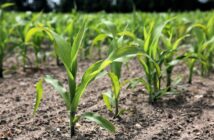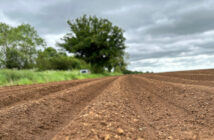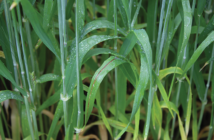A soil conditioner has been shown to improve the ability of OSR plants to withstand Cabbage Stem Flea Beetle (CSFB) damage. Trials with NIAB revealed reductions in leaf damage of 90% and significant reductions in stem and cotyledon damage.
Developed by Pelagia, Sea2Soil is the UK’s first liquid fish hydrolysate product containing a range of amino acids, fatty acids and an array of macro and micronutrients. The product works by feeding the soil bacteria that convert the macro and micro-nutrients contained in the hydrolysate into a form that is more readily available to the plants.
In turn, the improved microbial population feeds secondary and higher-level soil life such as protozoa, nematodes, and earthworms which work to improve soil structure by aerating the soil leading to better root development and reduction in abiotic stress. These macro-organisms also contribute to better soil nutrient availability within the soil.
NIAB conducted greenhouse trials comparing the effects Sea2Soil treated soil has on plant tissues (cotyledons, leaves, stems) one to 22 days after treatment versus an untreated control. NIAB found a 32% reduction in cotyledon feeding scares at 7 days, a 90% reduction in feeding scars to leaves on day 12 and 59% to stems by day 22.
“Sea2Soil showed a significant reduction in the feeding of CSFB on cotyledons within 2 days of application – several different rates showed a reduction in feeding damage up to 7 to days after application and may convey cover until they senesce,” suggests NIAB Adrian Harris.
The work will be extended this season to understand how the product reduces CSFB. “What helped trigger the research was farmer feedback on reduced CSFB damage. We know it acts as a deterrent but we don’t fully understand why, it could be something as simple as its odour. Hopefully, extending this research will give us the answer,” adds Pelagia technical manager Liz Brown.




